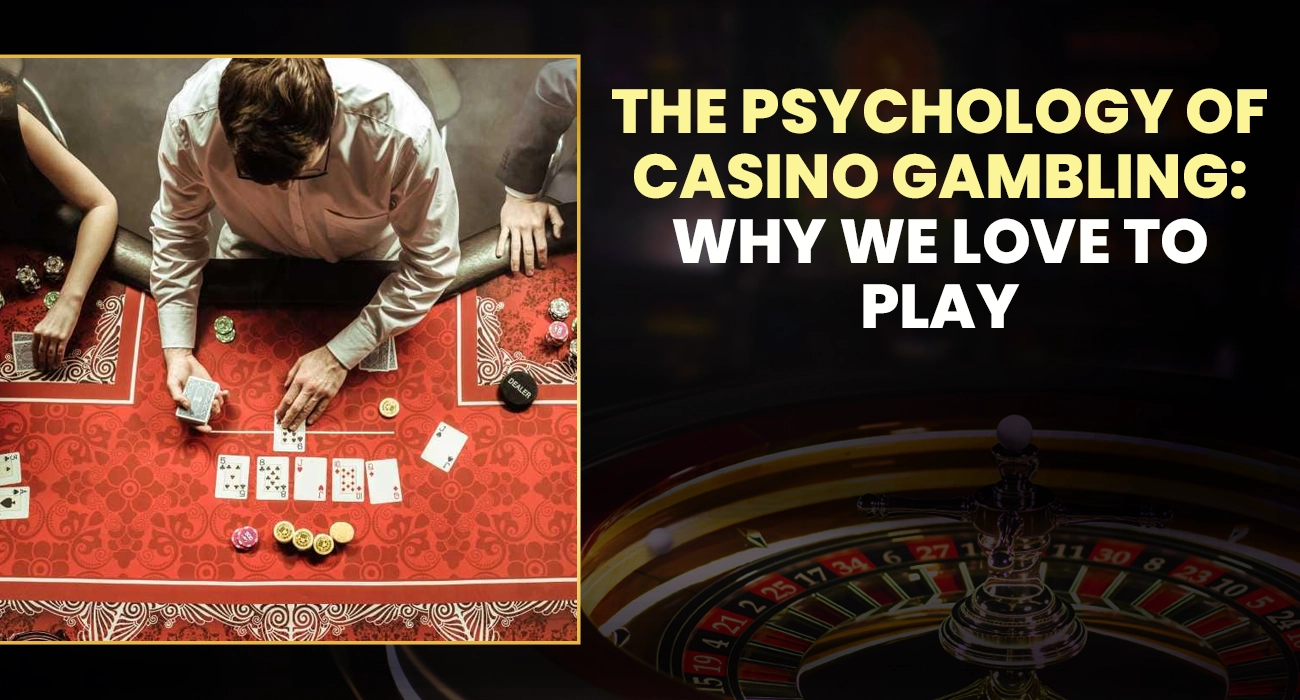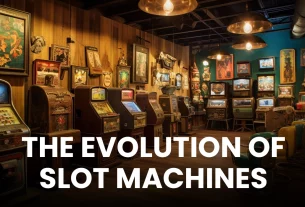The Psychology of Casino Gambling: Why We Love to Play
The world of casino gambling is an alluring one that enthralls millions of people worldwide. The shimmering lights, the rhythmic clinking of slot machines, and the suspense before a roll of the dice. People are drawn to casinos by a complex psychological interaction that goes beyond the games and the possibility of winning large sums of money. We will examine the fascinating facets of the psychology of casino gaming in this blog post, as well as the reasons behind our compulsive attraction to the excitement of the game.
The Rush of Dopamine:
Dopamine, frequently referred to as the “feel-good” neurotransmitter, lies at the center of the psychology of casino gambling. Our brains release dopamine when we play games on Best Online Casino App in India that have the potential to pay off, like winning a hand of poker or scoring the big jackpot on a slot machine. This spike in pleasure serves to both validate the behavior and establish a favorable relationship between gambling and oneself. Playing in casinos is thrilling because the hope of winning triggers the brain’s reward system.
Risk and Reward:
Humans are naturally risk-takers and seekers of novelty. Casino games appeal to our natural need for thrills and excitement by providing the ideal balance of risk and possible gain. A major incentive for players is the possibility of making a significant profit on a little initial commitment, and the element of surprise in the game keeps them coming back for more. A big part of why we love playing in casinos is the psychology of risk and reward.
Fun and Escape:
Casinos are intended to be visually stunning and immersive spaces that provide patrons with a sense of escape. People are temporarily transported from the worries of everyday life into another realm by the vivid lighting, enthralling sounds, and opulent settings. A casino’s atmosphere adds to the whole experience, transforming it from a place for gambling to one of entertainment. People are drawn to the appeal of casinos in large part due to the psychology of escapism.
Social Communication:
Given that people are social creatures by nature, casinos offer a social setting where people may mingle and engage with like-minded persons. The social side of casino gaming adds even more fun, whether you’re playing poker at a table or rooting for a friend at the roulette wheel. The entire appeal is enhanced by the shared experience and camaraderie, which elevates the games beyond mere competition and emphasizes the social bonds forged during play.
Cognitive Illusions and Biases:
Numerous cognitive biases and illusions also have an impact on the psychology of gambling. Two common instances include the gambler’s fallacy, which holds that previous occurrences determine future outcomes, and the illusion of control, which leads people to assume they have some degree of influence over the outcome. Because people may believe they can anticipate or manage the unpredictable nature of casino games, these cognitive biases contribute to the persistence of gambling behavior.
Numerous elements combine to form a captivating and seductive experience in the intricate web of casino psychology. Our passion for casino gaming is fueled by a variety of factors, including the social interactions at the gaming tables and the neurochemical reactions that follow victories. Gaining insight into these psychological components might help explain the allure of casinos and the reasons they remain well-liked global entertainment venues. It becomes evident as we make our way through the complex world of casino gaming that the appeal of the game goes much beyond the simple desire for financial gain; instead, it speaks to the core of the human psyche.
Also read: The Role of Community in Online Slot Tournaments: Building Camaraderie (khelraja.live)






